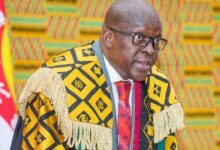It is approximately three months now when the government applied to the international Monetary Fund (IMF) for a bailout to stabilise the country’s macroeconomic challenges.
Since there must be a process to follow to secure the support, including negotiations, it takes a period to finalise things for the support to be released.
Yesterday, the country’s Finance Minister, Mr Ken Ofori-Atta, said the negotiations would be fast-tracked to ensure the key aspects of the programme are reflected in the 2023 annual budget statement to be read in November 2022.
As a way of supporting his assertion, he said the government was finalising its post-COVID-19 economic programme as the domestic blueprint to engage the IMF.
Mr Ofori-Atta explained that the support was needed to meet seven important areas he described as pillars.
He named them as debt sustainability; fiscal consolidation; strengthening monetary and exchange rate policies; building strong financial institutions; macro-critical structural reforms; maintaining peace and security; and economic growth and transformation.
He said Ghana needed a viable domestic financial system to support its development programme, especially in the next three years that the country would have limited access to the international capital market.
He said the sanctity and the well-functioning of the financial system was sacrosanct and stakeholder support was to achieve that objective.
Apparently having in mind the indisputable importance of the financial system, he announced a five-member committee consisting of prominent financial service professionals who will lead extensive stakeholder engagements across all the key segments of the financial sector, including banking, asset management, pensions, and insurance.
What the finance minister has said gives hope that all will be fine, especially
considering his expression of confidence that the key aspects of the
programme could reflect in the 2023 annual budget statement.
An issue which is very significant in the current scheme of financial matters in the country isdebt operations.
It is heart-warming Mr Ofori-Atta said at a press briefing yesterday that the government had not come to any agreement with the IMF on the parameters of debt operations and that the committee to be formed in the coming days will engage financial sector stakeholders
on how to proceed.
The Ghanaian Times is satisfied with this response because a senior director source at credit ratings agency Fitch has said the country’s domestic debt restructuring will be “highly unusual” as it could spell disaster for local financial institutions.
A Reuters news report yesterday even said a brief from Oxford Economics on Monday said such a move would risk sending Ghana into a recession.
The same report says the IMF team on a mission in the country from September 26 to October 7, among other assignments, will do a full assessment of the sustainability of Ghana’s debt burden and that if the debt is deemed unsustainable, the Fund will be unable to provide support without some sort of restructuring.
We hope the Finance Minister, the committee and other stakeholders would identify all the loopholes and plug them so that there would be a successful negotiation to secure the IMF assistance.
The whole country is ready for the assistance because of its promise of providing a magic wand to reverse the country’s economic woes and make the citizenry have some comfort in life.





